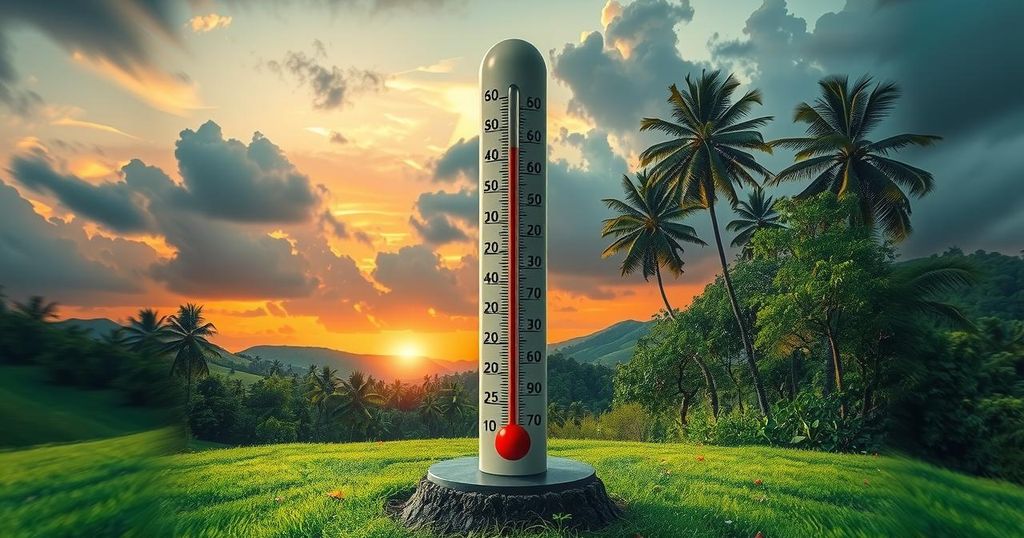Rising Temperatures in Kerala Indicate Potential for Hottest Year in 2025

Kerala is experiencing heightened temperatures as February progresses, suggesting a risk of 2025 being the hottest year yet. Experts from the IMD report considerable temperature deviations, with a notable increase expected due to climate change. Proactive measures are emphasized to shield agriculture and biodiversity from climatic extremes, as severe weather repercussions loom ahead.
Kerala’s climatic uniqueness substantially diverges from the Indian subcontinent, exhibiting distinct seasonal transitions. The state is vulnerable to climatic crises intensified by climate change, experiencing dire outcomes from its geographic location between the Arabian Sea and the Western Ghat mountains. Following the historic heat of 2024, rising temperatures indicate that 2025 may record even higher temperatures in Kerala.
Neetha K. Gopal, Head of the Indian Meteorological Department (IMD) in Kerala, highlights that only slight deviations from average temperatures have been observed. While rising temperatures typically mark this transitional period from winter to summer, the recorded maximum in Thiruvananthapuram was 2 degrees above normal this February. Future forecasts suggest no significant rain, leading to expectations of continued heat.
The IMD’s long-term data analysis reveals climate change impacts, notably affecting agriculture and livestock. Gopal emphasizes the necessity for strategic planning to safeguard agricultural practices and biodiversity from intense heat. Precautionary measures informed by IMD’s forecasts can help various government sectors prepare for climatic fluctuations.
Rising temperatures may give rise to heat waves, pressuring ecological and human health. Given that local residents are accustomed to average temperatures of 35 degrees Celsius, spikes above 40 degrees Celsius could severely impact the community and the economy. With summer approaching in March, repercussions from extreme conditions are anticipated.
The World Meteorological Organization reports that 2024 was the hottest year recorded, with previous years also ranking among the hottest periods documented. Global warming is predicted to intensify severe rainfall, necessitating robust measures for Kerala’s diverse ecosystems to manage the predicted climatic challenges ahead.
The discussion centers on Kerala’s temperature trends amidst climate change implications, with rising temperatures in February being a potential precursor to an even hotter 2025. The IMD analyzes temperature records and the state’s climatic patterns, emphasizing the effects on agriculture, health, and environment due to increasing warmth. Especially crucial for Kerala, which has experienced notable heat in previous years, is the need for proactive strategies to address climate vulnerabilities.
In conclusion, Kerala is witnessing rising temperatures early in 2025, raising concerns about the potential for it to become the hottest year on record. The IMD has noted slight deviations from normal temperatures and predicts continued high temperatures without significant rain. Authorities are urged to implement strategies for climate resilience, as the impacts of rising temperatures on health, agriculture, and the economy could be profound.
Original Source: www.onmanorama.com






